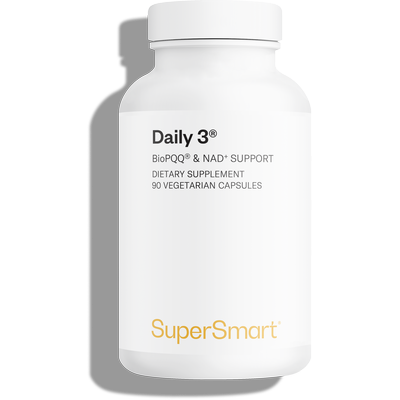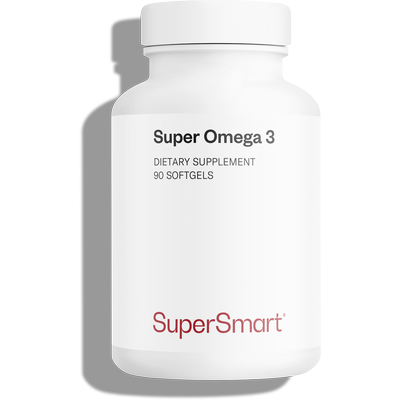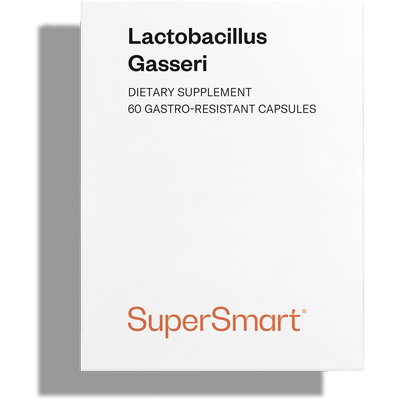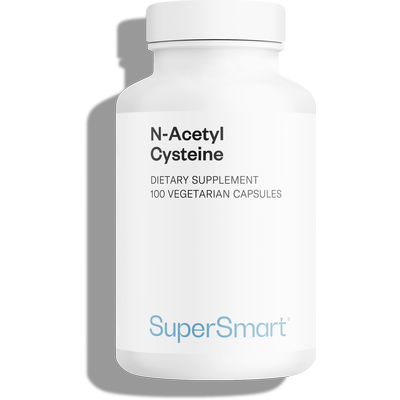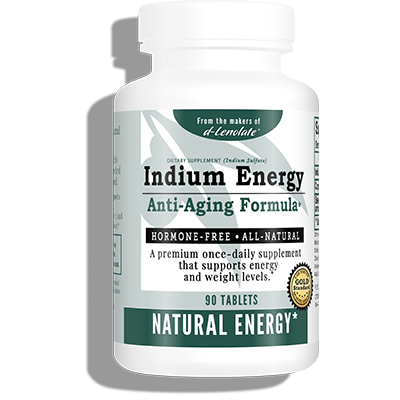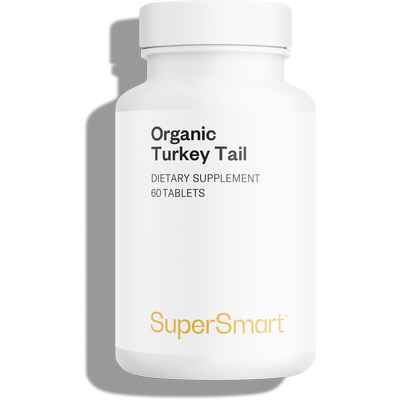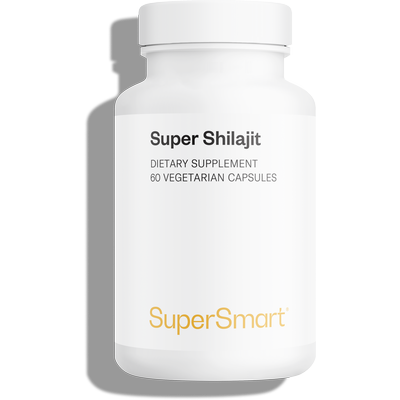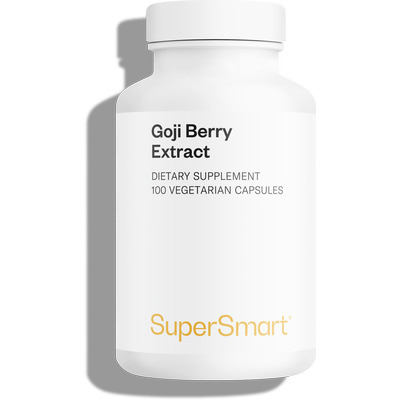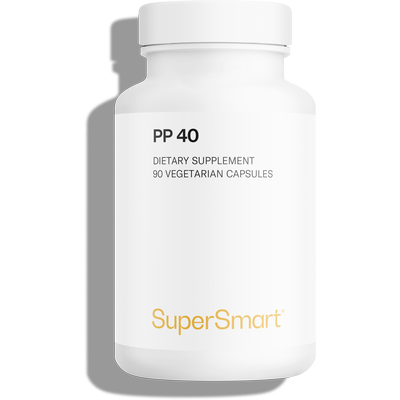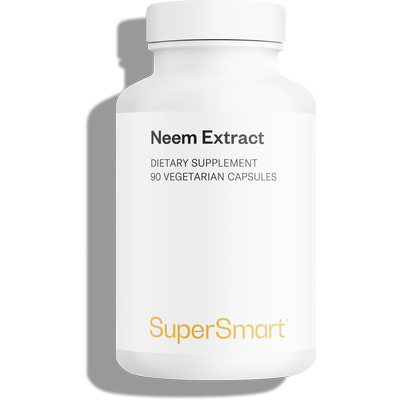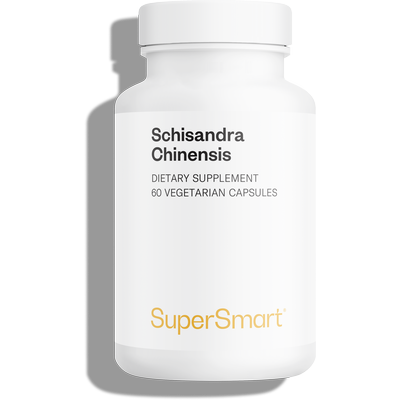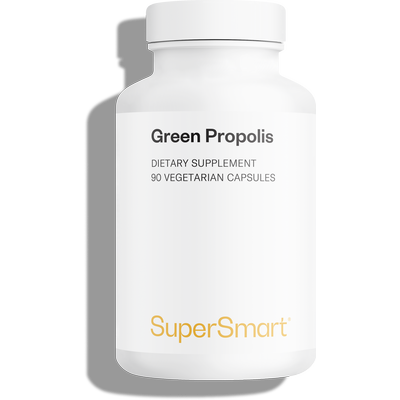In stock
VitaminD 5000 + Immunity Booster
Complete your selection
What is in VitaminD 5000 + Immunity Booster
Any questions?
Are you keen to improve your immune defences? Here are 4 tips guaranteed to help:
- reduce your stress levels. Excessive secretion of cortisol, also known as the stress hormone, can damage immune system function. So make sure you take the pressure off from time to time and relax;
- take regular exercise. Frequent (though not excessive) physical activity is known to stimulate immunity. Try, for example, to jog for two and a half hours a week, spread over three sessions;
- get enough sleep. Some studies have shown that fatigue can reduce the quality of the immune response;
- consume fermented foods and drinks (yogurt, pickles, sourdough bread, miso, milk or fruit kefir…) as they are good for gut flora - an important component of immunity.
There is still debate about which vitamin D blood levels produce benefits. The very latest evidence suggests that circulating levels in excess of 50 nmol/L, or even 75 nmol/L, may be optimal for overall health. Those below 30 nmol/L, on the other hand, are associated with adverse effects on health.
Achieving a blood concentration of 75 nmol/L often requires supplementation with at least 2000IU a day. In the same vein, taking 3000IU a day for eight weeks has been shown to result in a concentration of more than 75 nmol/L of 25(OH)D (19-20).
In 2010, more than 40 international scientists called for greater awareness among doctors of the importance of vitamin D in preventing osteoporosis and cardiovascular disease. They recommended that the entire Western population (living at middle latitudes) should supplement with 1000-2000IU, especially from October to March.
What about dietary intake?
There are very few sources of vitamin D in the diet. They are mainly restricted to animal-sourced fats, particularly those from oily fish, and fortified foods such as dairy products, and some vegetable oils and plant-based drinks.
According to the French SUVIMAX study, the diet may only provide an average of 136IU of vitamin D a day. It is thus the body’s endogenous production from UV-B which is primarily responsible for circulating levels.
Vitamin D3 5000 UI is an exceptional supplement that you can choose to buy for at least three main advantages:
- It contains vitamin D3, which is more effective than the vitamin D2 form found in plant-sourced products (23). The two forms were long thought to be equivalent but recent trials have shown this is not the case.
- It offers a powerful dose of 5000IU per supplement. It is designed to be taken every day (in which case it’s best to check your 25-hydroxyvitamin D status), twice-weekly, or weekly. Several studies have confirmed supplementation with 1000-10,000IU a day to be effective (24-27).
- It comes in the form of softgels and contains sunflower oil to maximise the absorption of the vitamin D. Comparative studies have shown that this form is better absorbed than the dry form and that it produced a more significant increase in 25(OH)D levels.
To maximise the immunostimulant effects of Immunity Booster’s ingredients, there are other high-quality supplements you might want to take as well.
Alongside Immunity Booster, you could start taking Green Propolis, an excellent green propolis supplement. This natural substance, produced by bees to protect their hives, contains more than 300 exceptional nutrients. It is highly effective at helping to improve your immune defences.
In addition, we’d draw your attention to the benefits of probiotics, particularly Bacillus subtilis. This active strain (I-2745) comes in the form of DR Caps™ in order to ensure that these ‘good bacteria’ arrive in the gut intact. The aim of this supplement is to help support your immune system and protect you from infection.
As vitamin D is fat-soluble, the body is able to store it in fats when intake exceeds requirements.
In theory, therefore, you could take mega-doses of vitamin D (100,000-500,000IU) each month or even each year. However, it has been demonstrated that daily ingestion is closer to what our bodies naturally prefer. High doses of vitamin D are also linked with several adverse effects, such as an increased risk of falls and fractures, respiratory infections (28), and hypercalcaemia (too much calcium in the blood, producing symptoms such as constipation) as well as a fall in the natural production of melatonin (a mediator of sleep).
It’s, therefore, better to opt for a supplement like VitaminD3 5000IU which can be taken every day (5000IU a day), every other day (2500IU a day), twice a week (around 1400IU a day) or weekly (around 700IU a day).
No. Spending long periods in the sun will not increase your vitamin D levels beyond a certain limit. Excessive exposure to the sun degrades pre-vitamin D3 (which is converted into D3 in the skin) and vitamin D3 itself. Lengthy sun exposure over the summer will therefore not be enough to maintain adequate levels over the winter months.
Those over 50 are still able to produce vitamin D from the sun’s rays but for several reasons, production is less effective, and levels of circulating vitamin D tend to be lower.
Research has demonstrated the presence of vitamin D hormone receptors (VDRs) in neurons and glial cells in the hippocampus, hypothalamus, cortex and subcortex, all areas of the brain involved in cognitive function (29).
In binding to these receptors, vitamin D triggers mechanisms which protect against the processes involved in neurocognitive problems (30). Vitamin D also exerts an antiatrophic effect by controlling the production of neurotrophic agents such as Nerve Growth Factor (NGF) and Glial cell line-Derived Neurotrophic Factor (GDNF) (31).
These properties may explain why low vitamin D levels in older people have been associated with cognitive problems (32-33) and Alzheimer’s disease (34).
The cohort analysis InCHIANTI established a link between hypovitaminosis D and cognitive problems, and showed that elderly people lacking in vitamin D (< 25 nmol/L) had a significantly increased risk of overall cognitive decline compared to those with higher levels (> 75 nmol/L) (35). This finding has been confirmed by other prospective studies, particularly the analysis of the MrOS (36) and SOF (37) cohorts. One study even showed that taking in excess of 800IU of vitamin D a day reduced the risk of Alzheimer’s disease by a factor of 5 after 7 years (38).
Note:
Most elderly people are deficient in vitamin D but not all will develop Alzheimer’s disease. It is therefore unlikely that a lack of vitamin D is the only factor responsible for the onset of the disease and that supplementing with vitamin D alone will be enough to prevent it (42).
Vitamin D3 5000IU should be taken alongside the meal of the day with the highest fat content. Doing so will increase the supplementation’s efficacy by 30%-60%. Fats encourage bile secretion which increases the absorption of vitamin D.
You can check how effective Vitamin D 5000IU is by asking your doctor for a 25-hydroxyvitamin D test (40) before and after supplementation. It’s the best biomarker of vitamin D (41).
This product’s softgels are of bovine origin. They are particularly suitable for supplements that require rapid solubility. Made from high-quality bovine gelatine, they are safe and effective.
Need help?
You may also like

